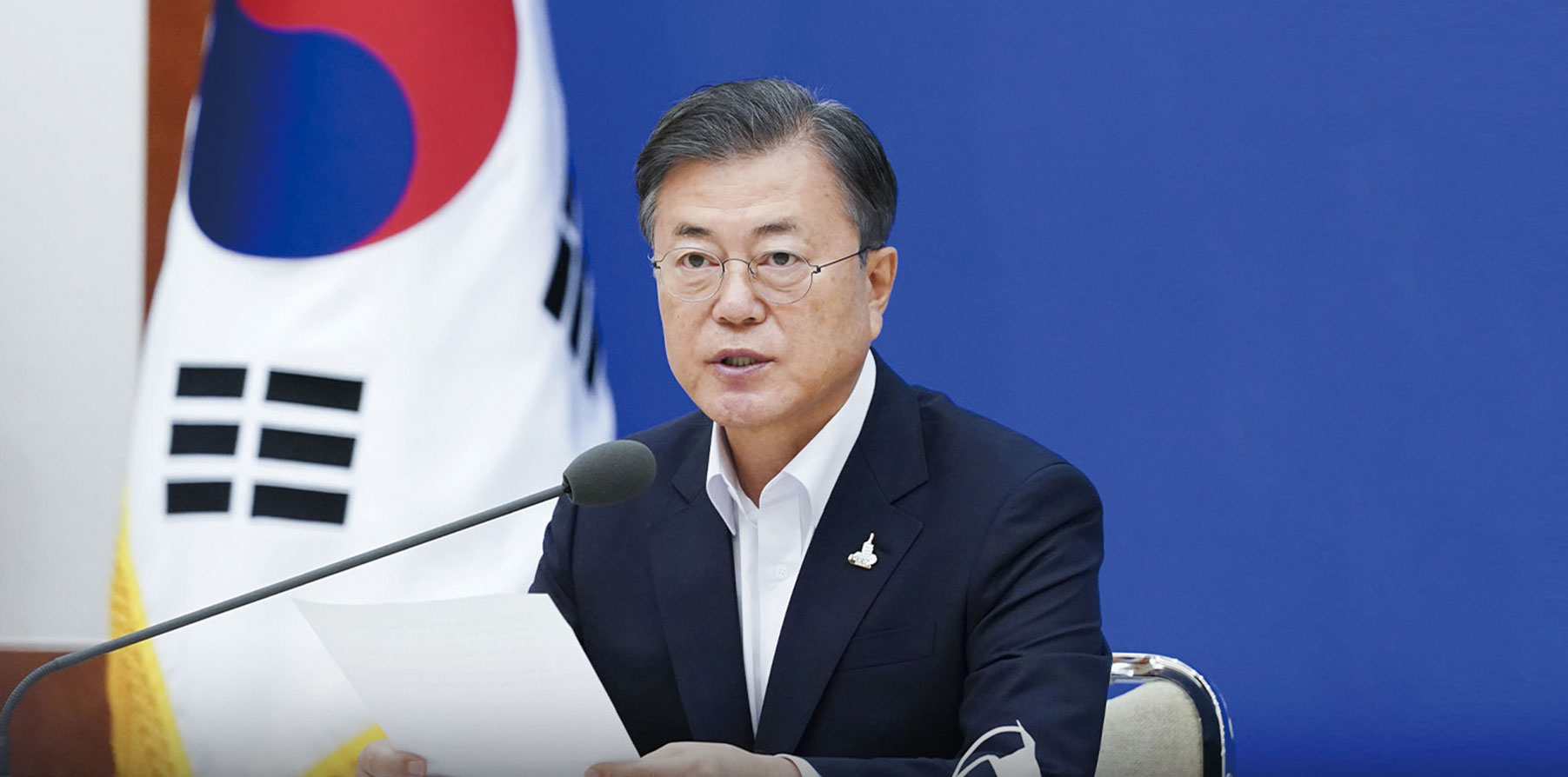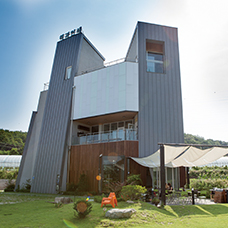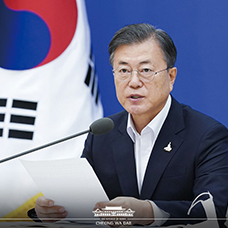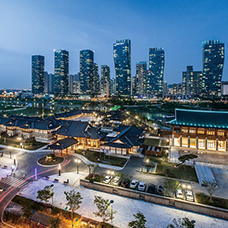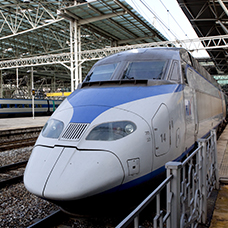Current Korea
4th Round of Relief
Amid a resurgence in COVID-19 cases in mid-August and early October, the Korean government's implementation of stricter social distancing further battered the reeling business sector in the country. To spur a business rebound especially with hard-hit small business owners and the self-employed, the country has approved a fourth supplementary budget in a fiscal year for the first time since 1961.
Written by• Sohn Ji-ae
In late August and early October, a resurgence in COVID-19 cases forced the raising of the social distancing level to 2.5, just one notch down from the highest Level 3. This was a major blow to many businesses that had been slowly recovering from the prolonged pandemic that began in February.
A wave of cluster infections and the resulting tightening of restrictions rapidly put a damper on all economic activity as the fragile business rebound screeched to a halt. The people, especially small business owners and the self-employed, were economically devastated again by a sharp decline in sales and rising rents.
Restaurants and smaller dining spots had to close by 9 p.m., with only takeaway and delivery service allowed afterwards. The dine-in option was banned at coffee shop and bakery chains, with only takeout and delivery permitted. Indoor sports facilities such as fitness centers and private cram institutes with more than 10 students were ordered closed. The rapid vanishing of small businesses nationwide made the sign saying “Closed due to COVID-19” a common sight on store doors.
As the number of COVID-19 infections remained at triple digits, the government was forced to take drastic action to stem the economic fallout through a fourth round of supplementary budget. President Moon Jae-in on Sept. 10 told a meeting of the Emergency Economic Council on the additional budget, “Quick support is urgent for those in life-or-death situations.”
Alleviating Flare-up
The latest budgetary support of KRW 7.8 trillion (USD 6.6 billion) marked the first time in 59 years that the Korean government allocated a fourth supplementary budget in a fiscal year. Seoul had injected an unprecedented KRW 277 trillion (USD 234.6 billion) because of the pandemic’s economic damage, a sum accounting for 14 percent of GDP.
Nearly half of the aid amount of KRW 3.8 trillion was allocated for providing cash payments to those hit the hardest by the latest outbreak, especially small business owners and the self-employed. An estimated 2.91 million eligible people will each receive a maximum of KRW 2 million (USD 1,703).
Another KRW 1.4 trillion will go toward protecting 1.2 million jobs through subsidies for businesses to retain employees. The self-employed working on a contract basis, freelancers and other vulnerable workers will also receive cash payments for job security.
The supplementary budget will also help expand the scope of support of KRW 200,000 (USD 170) for children from under age 7 to elementary school students, as well as assist telecommunication expenses for everyone ages 13 or older.
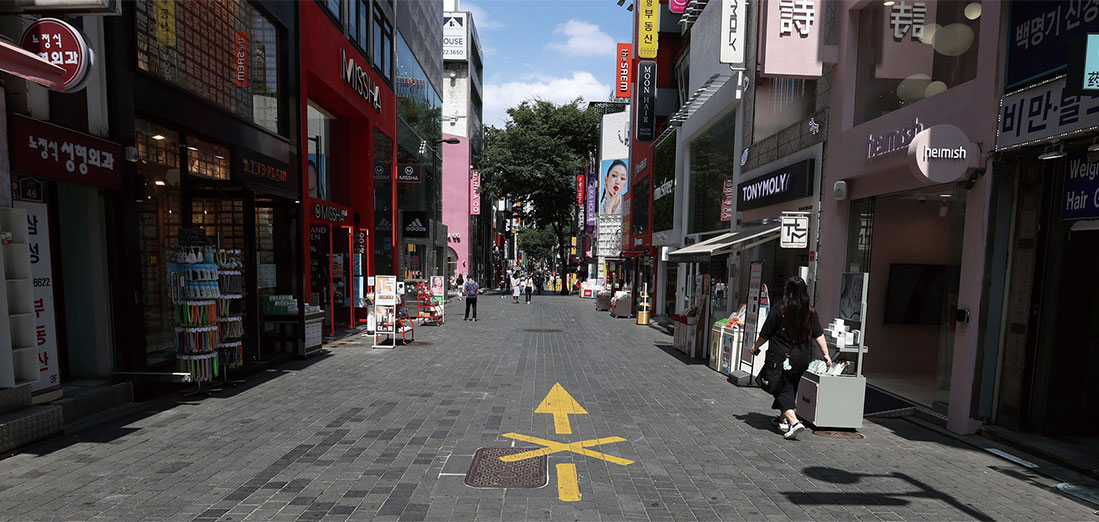
The must-stop shopping district of Myeongdong in Seoul on Aug. 26 turns into a ghost town amid a new wave of COVID-19 infections. © Korea.net
Aggressive Fiscal Aid
International organizations as well as foreign media outlets attribute Korea’s fast recovery from the pandemic-triggered economic fallout to its swift and aggressive fiscal spending plans. They acknowledged that the nation has recorded faster economic recovery than other countries by swiftly and effectively distributing emergency relief payments to all citizens, which led to boosting sales at businesses and helping businesses cope with the unprecedented pandemic-triggered slump.
President Moon said, “As the mission of the government is to protect the people's ordinary lives, we bear a truly heavy sense of responsibility and cannot but devise additional measures.”
“We realize that this supplementary budget cannot provide enough support to those suffering due to COVID-19 and struggling to make a living after having sustained enormous damage. There is no end in sight to the COVID-19 pandemic. Under these circumstances, we have no choice but to maximize the effect with our limited financial resources.”

